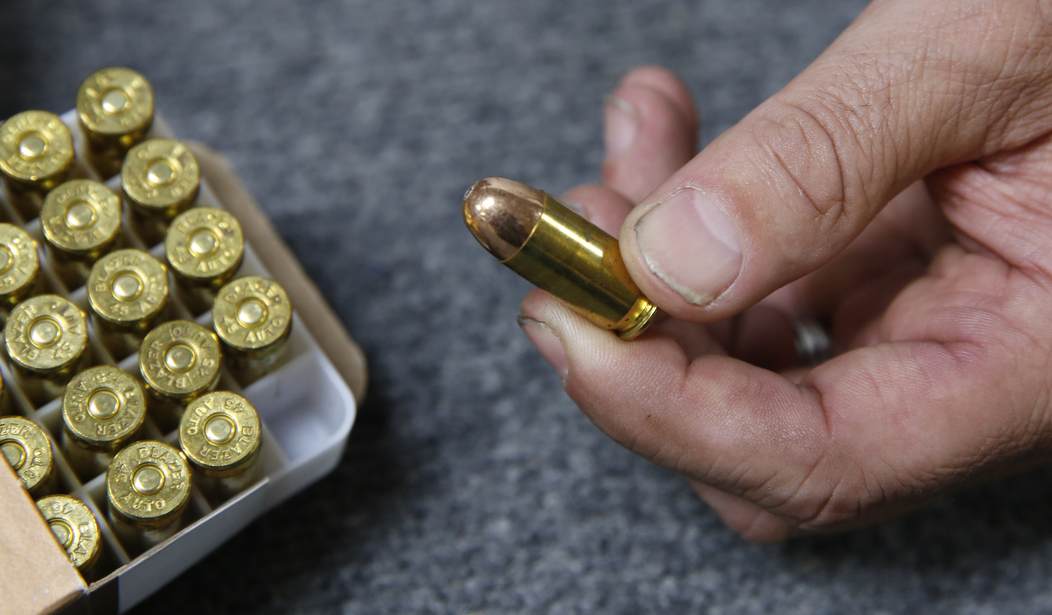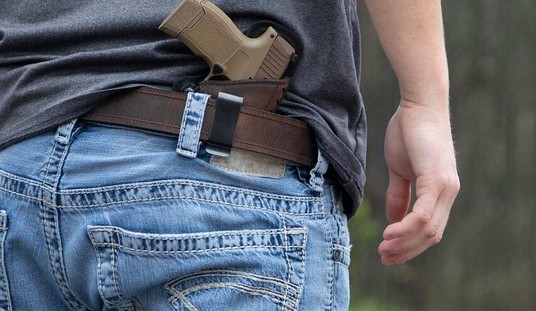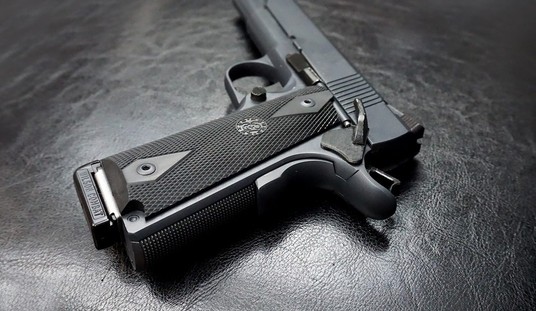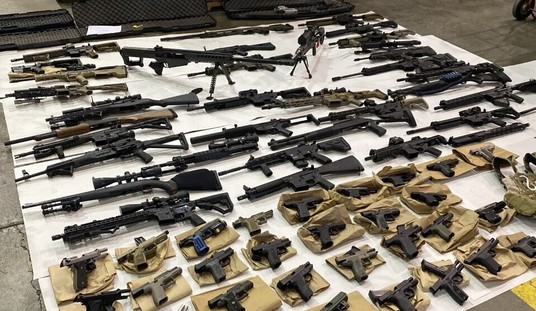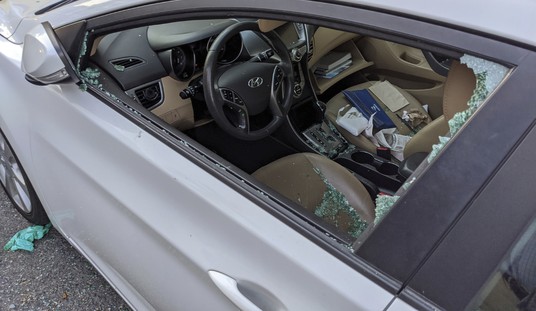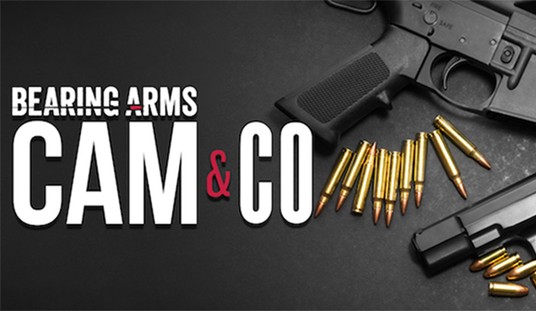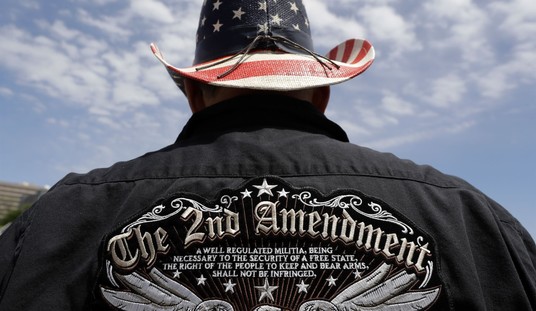Do firearms manufacturers have a moral culpability when it comes to guns that are used in crime? Over at the National Catholic Reporter, columnist Michael Sean Winters argues that yes, gun companies bear some moral responsibility for crimes in which a gun is used, and therefore should be subject to more legal culpability as well.
Winters bases his argument around speech delivered twenty years ago by former federal judge John Noonan, Jr. called “Cooperation in the Culture of Death,” delivered at Notre Dame’s Center for Ethics and Culture. In his speech, Noonan argued that while gun makers might not intend for a certain number of their products to end up in the hands of criminals, they continue to make firearms knowing at a certain percentage of them will be used to commit acts of violence.
If we look at the system as a whole, we know that handguns are the most usual choice in homicide by firearm. We can identify with some confidence the ten manufacturers of handguns most commonly used in crime. We may ask if these manufacturers are not certain that a definite percentage of what they make will be used to murder someone. If that is the situation, should the handgun makers not be analogized to the person who hands a weapon to one he knows will kill with it? Why should the gunmakers be allowed to be collectively blind to the harm they collectively facilitate?
There are several flaws in Noonan’s argument, starting with the idea that any institution is morally responsible for what individuals may do. Let’s place Noonan’s idea in the context of the criminal justice system, for example. If we look at the system as a whole, we know that some innocent people are going to be convicted of or plead guilty to crimes that they didn’t commit. We may ask if prosecutors and judges are not certain that a definite percentage of defendants in court are actually innocent of the crimes that have sent them to prison. If that is the situation, should the judges and prosecutors not be analogized to criminals who rob others of their lives, freedoms, and material goods? Why should the criminal justice system be allowed to be collectively blind to the harm they collectively facilitate?
Or, to put Noonan’s argument in another context: car manufacturers know that a certain number of their vehicles are going to be driven by someone who’s had too much to drink. Do they bear moral culpability for not requiring breathalyzer tests in all vehicles before the car can start? What about the distillers and brewers? Should they bear moral and legal responsibility when someone drinks too much?
Both Noonan and Winters reject a “theological vision accepts the world pretty much as it is, and encourages the individual Christian to make his or her way through it without actually agreeing to the evil to which he or she contributes,” with Winters calling that approach “spiritual mediocrity.” I call it a straw man.
I’ll only speak for myself here, but I believe that we can accept human nature as it is while still trying to improve society. However, recognizing the limitations of human fallibility, sin, and yes, evil should steer us clear from trying to adopt utopian plans to try to create heaven on earth. The history of the world has shown us that attempts to do so result in a living hell for those subjected to the grand and glorious plans of their task masters.
Winters goes on to praise Noonan’s approach, comparing the gun control debate to the arguments over abortion.
It is a sign of Noonan’s intellectual generosity that he also notes what could be the manufacturers’ best defense, namely, that their guns not only harm the innocent, they protect the innocent. People may need them to protect themselves and their homes. Noonan correctly states that in our system of government, it falls to the legislature to determine whether such arguments are justifiable or not and turns to the subject of legislative culpability.
In assessing the moral necessity of urging a legislator to vote to curb violence, Noonan invokes the kind of language — prophetic in tone and scope — that is more usually found in debates about abortion. The juxtaposition of familiar language in this unfamiliar rhetorical setting is delicious and should give great pause to those who defend the right to own and manufacture guns free from any and all censure or restriction.
It’s not “generous” of Noonan to acknowledge the fact that guns are merely an inanimate object that can be used for good as well as evil. It’s self-evident, even though Winters seems much more reluctant to accept that truth. In fact, Winters completely glosses over the idea that firearms are used for lawful purposes far more frequently than they’re used in crime.
Winters (and by extension Noonan) also conflate a “vote to curb violence” with a vote to curb gun ownership. Gun control is not a synonym for violence prevention, and we know that there are effective ways to reduce violent crime and suicides that don’t involve trying to ban guns or hold firearms manufacturers morally or legally responsible for the third-party actions of criminals.
The United States has more than 100-million gun owners and more than 400-million privately owned firearms. Citizens also possess (and many of them zealously guard) the right keep and bear them. Whether you believe that making a gun is a sin, a right, or even both, those are the facts. I would argue that as Christians, it’s far more important to provide a living testament to Christ’s teachings than to try to ban guns. After all, Jesus wasn’t a sword-control activist back in the day. In fact, he instructed his disciples to get a sword before they set out to spread his message far and wide; not to wield the blade as an instrument of conversion, but of self-defense.
As attorney and scholar Dave Kopel points out, the Catholic Church has even granted sainthood to a noted monk and marksman who used a firearm to defend the lives of innocents.
February 27 is the feast day of Saint Gabriel Possenti. According to The One Year Book of Saints, as a young man in 19th-century Italy, Francesco Possenti was known as the best dresser in town, as a “superb horseman,” and as “an excellent marksman.” The young man was also a consummate partygoer, who was engaged to two women at the same time. Twice during school he had fallen desperately ill, promised to give his life to God if he recovered, and then forgotten his promise. One day at church, Possenti saw a banner of Mary. He felt that her eyes looked directly at him, and he heard the words “Keep your promise.” Possenti immediately joined an order of monks, taking the name Brother Gabriel.
The main incident for which Saint Gabriel Possenti is remembered was this: “One a summer day a little over a hundred years ago, a slim figure in a black cassock [Possenti] stood facing a gang of mercenaries in a small town in Piedmont, Italy. He had just disarmed one of the soldiers who was attacking a young girl, had faced the rest of the band fearlessly, then drove them all out of the village at the point of a gun….[W]hen Garibaldi’s mercenaries swept down through Italy ravaging villages, Brother Gabriel showed the kind of man he was by confronting them, astonishing them with his marksmanship, and saving the small village where his monastery was located.”
Saint Gabriel Possenti’s “astonishing marksmanship” was displayed after he had just disarmed the soldier. The mercenaries’ leader told Possenti that it would take more than just one monk with a handgun to make the mercenaries leave town. The saint pointed out to the mercenaries a lizard which was running across the road. Possenti shot the lizard right through the head, at which point the mercenaries decided that discretion was the better part of valor; they obeyed Possenti’s orders to extinguish the fires they had started and to return the property they had stolen. They then fled the village, never to be heard from again.
In the eyes of Noonan and Winters, Possenti may be a saint, but the men who made his gun committed a sinful act by doing so. As a Christian, I know that I’m a sinner, but I also know that my gun ownership and support for the right of the people to keep and bear arms does not make me morally culpable when guns are misused by others in acts of violence. As far as my faith is concerned, it’s much more important for me to love my neighbor than it is to disarm them.

